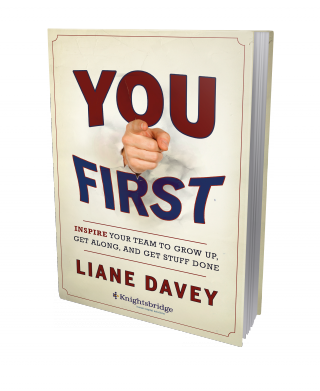Career
Spread Too Thin: 4 Secrets of Reducing Your Workload
Good team players don't always say "yes." Know when to say "no."
Posted September 24, 2013

Are you spread too thin?
The importance of being a good team player is something that is reinforced from our earliest days in school and on the little league team. When we enter the world of work, being a good team player means saying “yes” when you’re asked to do something. In this era of accountability and initiative if you’re a really good team player, you’ll step up without even being asked. We’ve socialized you to stretch yourself to the breaking point, all in service of “taking one for the team.”
In my experience as a manager, I find the compulsion to say yes is so strong that new employees will take on more and more work and stop only when they finally (and inevitably) drop the ball. The result is a difficult, embarrassing episode, which for some brief period of time causes the person to avoid saying yes to a few things. But before I know it, really keen team members are back saying yes to everything.
Alarmingly, this tendency to want to be helpful and to take on more and more work doesn’t lessen much even with time and experience. The same talented, aligned, and engaged people keep saying yes to too many things. The result is chronically poor execution, perpetual violations of work-life balance, and levels of stress and anxiety that make the whole team a powder keg waiting to blow.
We have got to get over our view that good team players say yes. It is driving us nuts, reducing our effectiveness, and resulting in poor quality work. The team player of the future must “Know When to Say No.” Here’s how.
Delete:
There are things that you just need to delete from your task list. These are things that don’t add value for you, or for the organization. For me, this includes lots of meetings that I’m only invited to as a courtesy. To identify opportunities to delete ask: “To what extent is this still relevant?” “How are you using these outputs?” “What would be the impact be if we stopped this?”
Delay:
Sometimes you need to delay action. When “issues” arise, people can catastrophize and cause crazy amounts of work in the process. It’s important to assess the core issue and to wait for the flailing to stop before jumping into knee-jerk action.
Distribute:
Some work is best done by someone other than you. Taking on work that you could do—but slowly and with questionable quality—just doesn’t make sense. If someone is more efficient and effective, distributing the work to them is better than doing it yourself. What work do you do that would be better distributed to someone else?
Diminish:
Perhaps the most valuable strategy for saying “no” is not to say it outright. The diminish strategy pares work back to its core to reduce the effort required, without losing the essential elements that are adding value. To diminish work, ask questions such as: “What are you trying to achieve?” What is the most important part of this?” How could we make this more manageable?”
Saying “yes” is important when it’s the right work and you’re the right person. Otherwise, delete it, delay it, distribute, or diminish it. You and your team will be stronger for it.

You First: In stores now
This is the fourth in a series of blogs based on my new book You First: Inspire Your Team to Grow Up, Get Along, and Get Stuff Done. See others in the series:


